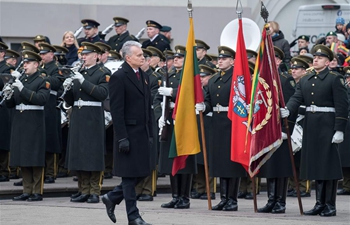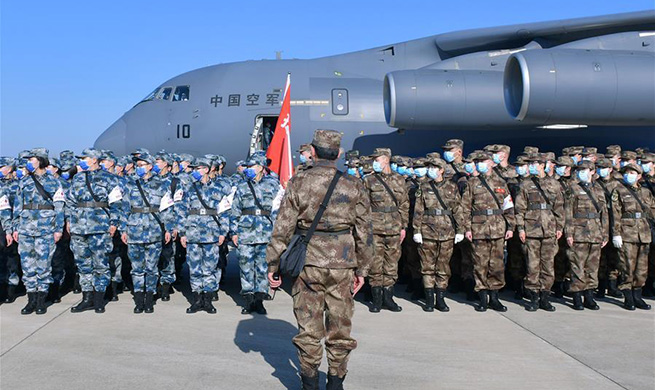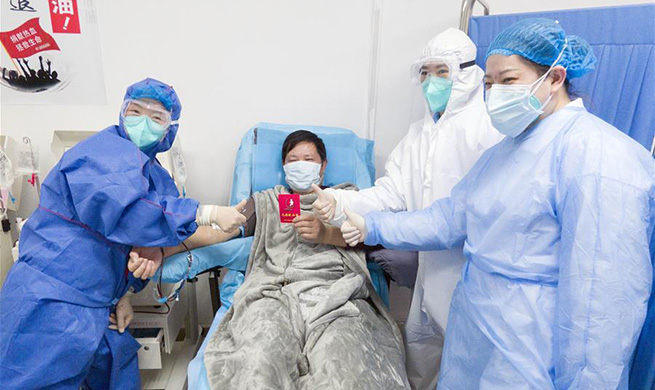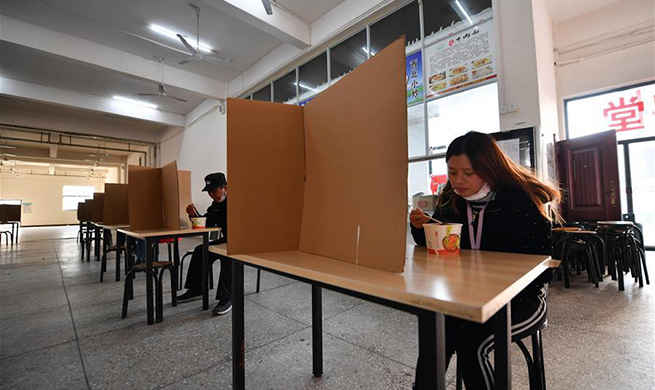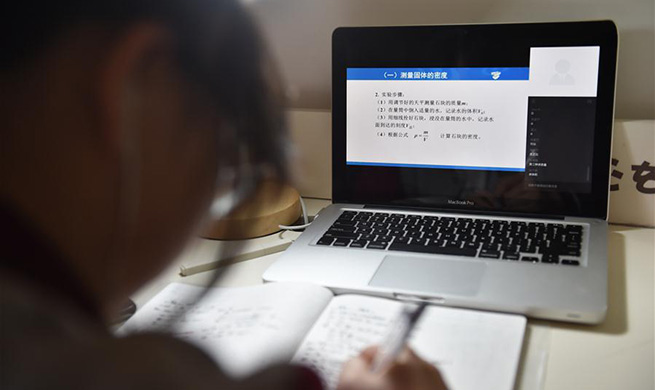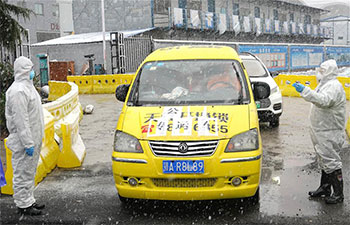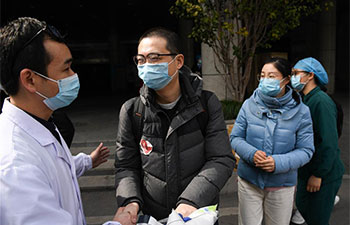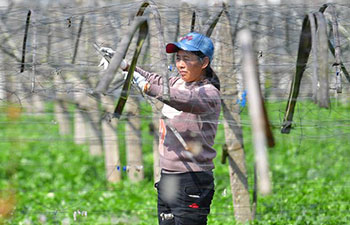UNITED NATIONS, Feb. 17 (Xinhua) -- Parliaments have a major role to play in scaling up action to ensure that adequate financial resources are allocated to education, girls' education and technical and vocational training throughout the national budgetary processes, the president of the United Nations General Assembly (UNGA) said on Monday.
In his address to the annual Inter-Parliamentary Union (IPU) hearing at the UN headquarters in New York, Tijjani Muhammad-Bande said that education is a key priority of the Assembly's 74th session.
The president said he was encouraged that the IPU has taken this opportunity to highlight the importance of implementing Sustainable Development Goal 4 on quality education.
Opening the hearing, Muhammad-Bande underscored that to provide youth with "the best possible start in life" the fourth Sustainable Development Goals (SDG 4) must be implemented and adequately financed.
He pointed out that at least one-in-four countries do not allocate 4 percent of their gross domestic products (GDP) and at least 15 percent of their public expenditures to education - both SDG 4 benchmarks.
"If we are to address the learning crisis and for students to meet the minimum levels of literacy and basic proficiency in mathematics globally, we must invest in our people, in particular our youth," he noted.
Muhammad-Bande said that to learn, students require a safe, bully-free environment, sanitation facilities, clean running water, electricity and internet connectivity.
"It is, therefore, clear that we can only make gains on implementing SDG 4 if we approach it as a cross-cutting area which spans multiple government portfolios," he said. "A strong curriculum taught by well-trained teachers is essential to ensuring a high level of learning which meets the needs of students, indeed the needs of society."
The UNGA president also stressed that every student must have equal opportunities to study all subjects, especially girls in science, technology, engineering and mathematics (STEM).
Noting that only 35 percent of students in STEM are female, he highlighted the need to "encourage our best and brightest girls and boys to pursue careers" in these fields "if we are to succeed in building a resilient, climate-smart world."
For children trapped in conflict, school provides stability and hope for a brighter future with each year of education reducing the risk of a youth's involvement in conflict by 20 percent. And graduates of secondary education exhibit more tolerance towards people of a different race, religion and migration status than their primary-level education peers, he said.
"We must provide young people with the tools they need to become peacebuilders," Muhammad-Bande said. "To fail to do so, would be to fail a generation."
He called on parliamentarians to implement SDG 4, saying "there is no justifiable reason for 265 million children to be out of school at this very moment.
"If we fail to invest in our people, especially our youth, we will fail in implementing the primary mandate of the United Nations, which is to uphold peace and security for all," said the president.
The IPU is a global inter-parliamentary institution established in 1889. It was the first permanent forum for political multilateral negotiations. Initially, the organization was for individual parliamentarians, but has since transformed into an international organization of the parliaments of sovereign states. The IPU has permanent observer status at the UN General Assembly.





